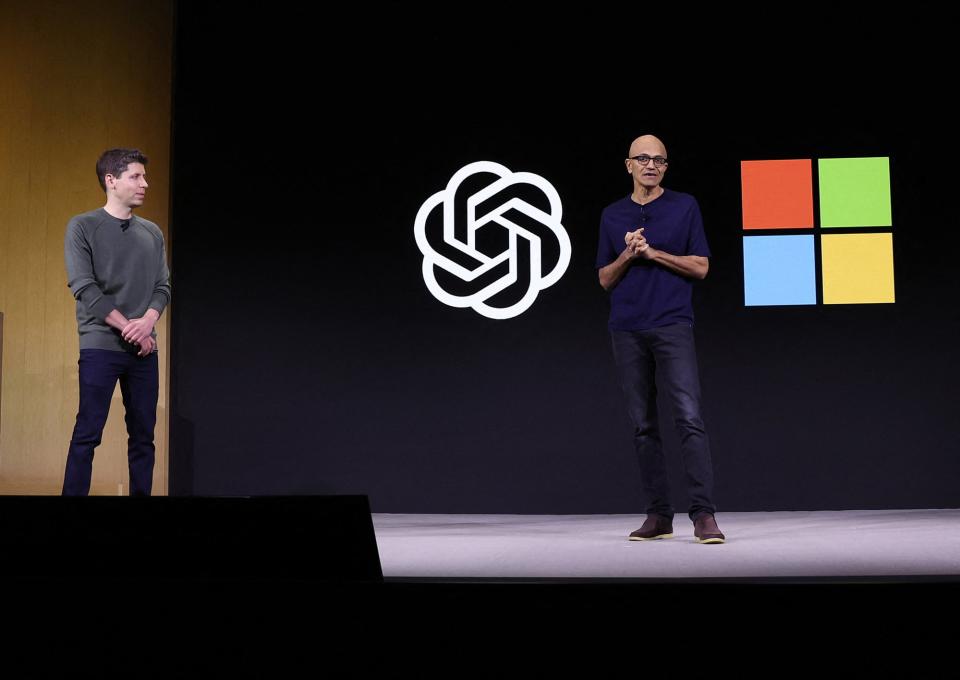As OpenAI blocks China, developers scramble to keep GPT access through VPNs
Chinese developers have continued to find ways to access OpenAI's artificial intelligence (AI) models from the mainland after the Microsoft-backed start-up further restricted access to the technology behind its popular ChatGPT service.
Seven developers spread across China told the Post on Wednesday that they were using virtual private networks (VPNs) and third-party services that still have GPT access to continue to use the AI models that are considered the global industry benchmark.
OpenAI was once aggressive about blocking VPN access by banning internet protocol (IP) addresses known to be associated with such services.
Do you have questions about the biggest topics and trends from around the world? Get the answers with SCMP Knowledge, our new platform of curated content with explainers, FAQs, analyses and infographics brought to you by our award-winning team.
OpenAI was still accessible using a Chinese VPN service that advertises ChatGPT access on Wednesday, the first full day in China that OpenAI had blocked the country from accessing its application programming interface (API), according to tests by the Post.
The developers, who spoke on condition of anonymity because of the murky legality of using foreign AI technologies and VPNs on the mainland, are based in cities around the country including Guangzhou in southern Guangdong province, Chengdu in southwestern Sichuan province, and Dalian, a port city in northeastern Liaoning province.
OpenAI did not immediately respond to a request for comment on Wednesday.

Microsoft CEO Satya Nadella (right) speaks as OpenAI CEO Sam Altman looks on during the OpenAI DevDay event in San Francisco on November 6, 2023. Photo: AFP alt=Microsoft CEO Satya Nadella (right) speaks as OpenAI CEO Sam Altman looks on during the OpenAI DevDay event in San Francisco on November 6, 2023. Photo: AFP>
OpenAI announced late last month that it would start blocking connections to its API from regions that it does not support starting from July 9 in the US. Unsupported regions include those that are sanctioned by the US - such as Iran, North Korea and Russia - along with China, Hong Kong and Macau.
Other large AI services such as Google's Gemini and Anthropic's Claude have also blocked access from China and Hong Kong amid geopolitical uncertainties exacerbated by a US-China tech war. Microsoft, however, has maintained access in the region.
Third-party services that still have GPT access such as Microsoft Azure are another means through which developers in China can use GPT models.
While most Chinese services offering this access have been shut down owing to regulatory pressure, Microsoft maintains enterprise access in mainland China and has repeatedly committed to maintaining access to its Copilot AI service in Hong Kong, where it hopes to put AI in every school.
The jury is still out on whether OpenAI can effectively restrict unwanted access to its publicly available services.
One developer explained that using an account linked to a foreign mobile phone number while connected to OpenAI's API through a VPN makes it difficult for the company to determine where the connection originated from.
But there are anecdotal signs that it is getting harder to access OpenAI in China, where the use of unapproved VPNs is illegal and publicly available large language models (LLMs) must be licensed. One developer said that his GPT service provider has disabled some OpenAI services.
Still, most of the developers said the move is unlikely to deal a significant blow to their work, as there are now many LLM alternatives from both local and global AI firms.
Many of the developers said that they are coming up with backup plans, such as migrating to Anthropic, whose latest Claude Sonnet 3.5 has received wide acclaim for its capabilities relative to the latest GPT-4 models. However, Anthropic also restricts API access in China, according to tests by the Post.
Some developers are also considering switching to domestic AI platforms, which have been scrambling to find ways to match the capabilities of overseas models.
This article originally appeared in the South China Morning Post (SCMP), the most authoritative voice reporting on China and Asia for more than a century. For more SCMP stories, please explore the SCMP app or visit the SCMP's Facebook and Twitter pages. Copyright © 2024 South China Morning Post Publishers Ltd. All rights reserved.
Copyright (c) 2024. South China Morning Post Publishers Ltd. All rights reserved.

 Yahoo Finance
Yahoo Finance 